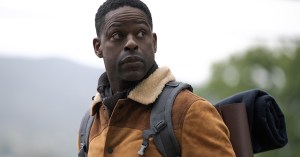Guy Pearce’s Five Favorite Films
The Proficient Actor Explains His Love for Peter Weir, Al Pacino, and Why Elephant Man Hits Close to Home.
by Kerr Lordygan | March 7, 2017

(Photo by Neilson Barnard/Getty Images)
Memento was a mindbending mystery flick that rested almost entirely on Guy Pearce‘s electrifying breakout performance in the lead role. Consider his work in other films like The Adventures of Priscilla, Queen of the Desert, L.A., Confidential, The King’s Speech, The Time Machine, ABC’s When We Rise, and soon, Alien: Covenant, and it’s easy to see why his remarkable versatility has become a hot commodity.
This week, Pearce stars in Brimstone as an intimidating reverend out for revenge, and we were almost a’scared to ask the guy anything, but we were pleased to find that he loves movies just as much as the rest of us. Ever charming and earnest, he gave us his list of Five Favorite Films, which you can read below.
 91%
91%
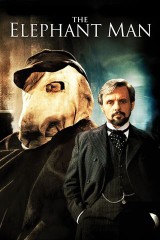
It came out in 1980 and I have a sister with an intellectual disability. I think in 1980 — when I was 12 and I saw The Elephant Man for the first time — the film just struck a chord in me that nothing ever had before, and it does to this day when I watch it. Obviously the performances by Anthony Hopkins and John Hurt and John Gielgud, etc. are just so sensitive and touching that it’s heartbreaking for me. It really touches me in a way that I think has — not to suggest that my sister has the same condition that Joseph Merrick had — but the way in which that character feels ostracized and the way in which people are judgmental of him are all things that really hit home for me as a young boy trying to protect my sister out there in the world. Very much connected to my upbringing, but obviously quite a different story.
But I just think Anthony Hopkins in that film, the way that David Lynch captured him, and obviously the way he performed that role of Freddy Treves just… There’s nothing better. Anthony Hopkins is someone who I think does sensitivity on screen better than anybody anyway, so his heartbreak and his compassion for that character was just unforgettable really.
 97%
97%
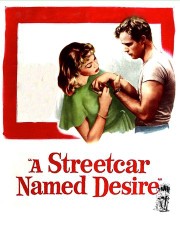
Something actually I watched recently — my girlfriend hadn’t seen it yet — A Streetcar Named Desire. I’m a huge Marlon Brando fan, as a lot of actors are. I know it’s a cliché, but obviously there are many performances of Brando’s that are just exquisite, but there’s something about that performance as Stanley in Streetcar that I think is just so raw and electric, as everybody says. I’m not saying anything that anybody hasn’t said before, so excuse my banter, but you just cannot take your eyes off him. I think as a young male actor at the time, when I first started seeing that film, you just wanted to deliver everything that he could deliver, and of course, none of us can. I certainly can’t, but the envy that I would feel for him, as well as the thrill of watching what he could do, was so mixed up in my head and my body that I just go back to that film every couple of years and watch it again.
Obviously, Tennessee Williams is such a wonderful writer, and we all understand, I think, those powerful emotions that exist within families, and those things that seem very subtle at one point that can then be the breakdown of a family. I just think the combination of his writing and Brando’s performance is just exquisite. It’s really exquisite.
 97%
97%
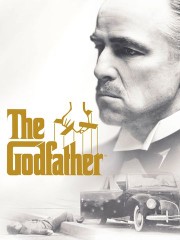
Okay. I do come back to The Godfather, and to be honest, if I had more time to think about it, I would probably leave The Godfather out only because I know that it’s a film that is often touted. But primarily, I think it’s about Pacino for me.
I think all of the things that make The Godfather what people call the perfect film, where you’re taken into a world where, for most us, is really just — we’re never going to go there ourselves, into the world of the mafia and organized crime, but to see how it’s connected to family and how that is the basis of this story being the bond within a family, is so foreign to, I think, most of us. Foreign as far as where killing is part of family life. It’s just so unusual, but at the same time, it’s done in such a way that they make it feel perfectly normal.
Of course, again, there’s Brando, there’s Pacino, and then in the second one we see De Niro.
I think I’m often drawn to films primarily because of the performances, and speaking of performances, I would then probably move to Dog Day Afternoon with Al Pacino for very different reasons. We see Pacino in Godfather in an extremely restrained performance. And then, of course, in Dog Day Afternoon, we see just this loose mess of a human being spilling out out all over the place, and he’s just absolutely electric and just as compelling and just as unpredictable as the character Michael Corleone in Godfather, but completely at opposite ends of the spectrum.
I just think Pacino is someone for me who, like Brando, I just find him completely watchable and can’t get enough of him. Anything he does, really, I would find compelling. Although there have been performances lately that haven’t been as interesting as the earlier stuff.
[Godfather and Dog Day Afternoon] are so different. They’re really, really different. I think Godfather is a better film, but I think Dog Day — that performance — John Cazale‘s performance in Dog Day, as well — and as you know, I have really eclectic taste anyway in the kinds of things that I like, and the kinds of jobs that I choose, too. I get just as much out of both of those films. The potential energy that exists in Godfather versus Dog Day is that they’re just extreme, explosive kind of sweaty performances of Pacino [and they are] are two completely different things, but they both affect me a great deal.
 79%
79%
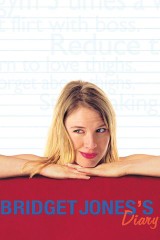
I’m also a big fan of comedy as well, so even things to this day like Bridget Jones’s Diary, there was just something about Bridget Jones that I thought … And I guess it’s [Renée Zellweger‘s] performance. I remember there was a lot of talk about the fact that they cast an American in that role, but I think she captured the sensibility of a repressed English girl who was desperate to fall in love so beautifully And as an actor myself, often you caught slack if you’re playing a gay person and you’re not really gay, or you’re playing an American and you’re not really American, or you’re playing whatever it happens to be. I just think if you can find the essence in a character and pull it off, then it doesn’t matter where you’re from or what your nationality is, etc. There’s something to me about that film that’s like the perfect romantic comedy. I just think it’s a bit hard to put my finger on what it is, to be honest. It’s just beautifully executed. Everything’s so well balanced. Often whenever I read a romantic comedy now, I’m comparing it to Bridget Jones and if it’s planned well.
 91%
91%
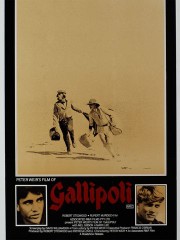
One of my favorite directors is Peter Weir, and a film that I watched recently of his is Gallipoli — Mel Gibson and Mark Lee, as well as a bunch of other great Australian actors. I think that film for me is this incredible combination of the brutality of war and yet the sensitivity of the human spirit, and I think Mel Gibson is absolutely electric and fantastic in that film, but I think Mark Lee is utterly heartbreaking. His almost non-sexual personality and spirit is so engaging and sensitive that the film, and the combination with his performance, the energy of the film, and then the music in that film really — I think music is a really important aspect in film, and, as you know, you can play Yakety Sax over a scene, or you can play something from Morricone over a scene, and the scene will then have a completely different meaning and feel. That’s an extreme example, but if music is done well in a movie, it can turn anything, even a three dimensional performance — it can make it turn more three dimensional because it enhances what is meant to be there. I think that the music used in Gallipoli is just utterly heartbreaking. Really, really heartbreaking and beautiful.
Brimstone opens on Friday, Mar. 10, 2017 in limited release.




